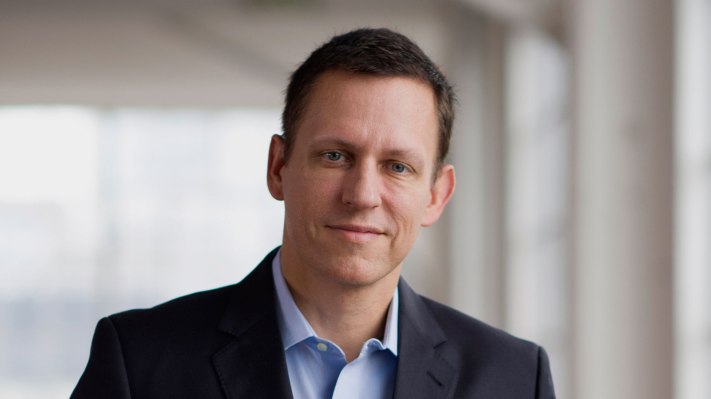Today, Mark Zuckerberg and Facebook are hosting its annual shareholder meeting. As Recode noted earlier, every one of Facebook’s board members will be up for re-election, too, including billionaire investor Peter Thiel, whose director role has come under fire in the wake of revelations that he financed a very personal campaign to put the media outlet Gawker out of business.
[Update 11:45am: Facebook has voted to re-elect Thiel as a board member. Read more about the vote here.]
Facebook COO Sheryl Sandberg has already said Thiel isn’t going anywhere, despite that Gawker is a Facebook customer. “We didn’t know about it,” Sandberg said at Recode’s conference last month of Thiel’s side project, telling the audience,”This isn’t a Facebook thing. We have very independent board members, with very independent thoughts that they share publicly.”
Thiel — Facebook’s longest-standing board member — and Zuckerberg also seemingly underscored their close relationship back in February, when Zuckerberg was given an award by the German media company Axel Springer. While Bill Gates paid tribute to Zuckerberg in a pre-taped video shown at the ceremony, Thiel paid tribute to Zuckerberg in person in a six-minute-long speech about how the company has changed the world.
It was unsurprisingly glowing given the context. Said Thiel:
Facebook has put people back at the center of technology and the center of computers. And this may sound banal and trivial today but this was certainly not the way people were talking about technology and Silicon Valley in 2000. It was all about data, information, “organizing the world’s information” . . . It was about replacing and substituting humans with computer algorithms, automated directories of one sort of another, and I think this idea that computers would somehow replace people was the dominant theme in Silicon Valley if you had to talk about it 15 years ago. What Facebook has never been about [is] replacing people or substituting computers for people but instead using computers to bring out the best in existing human relations and in this way bring people back to the center.”
Facebook supporters would certainly support the sentiment, though skeptics might note Facebook’s heavy reliance on algorithms, along with fact that many people now use Facebook as a substitute to keep tabs on friends, rather than talk with them — one factor among others that has prompted psychologists to link Facebook use to depressive symptoms.
Thiel also talked about Zuckerberg’s role in developing Facebook’s News Feed feature and Zuckerberg’s interest in “building a social network that would respect people, value relationships and treat people in a reasonable kind of way” — the suggestion being that without Facebook, the internet could be a far uglier place than it is today (which seems plausible). As he noted: “There was an alternate version where the internet was exciting but kind of a nasty place where people could behave in ways they would never behave in real life.”
Thiel concluded by saying that he thinks “Facebook has struck a very good balance in respecting privacy, real identify, and creating a civil place where the bulk of discourse is civil, reasonable and [where] people bring out the best in other human beings rather than anonymously bringing out the worst.”
Whether that was a then little-understood dig at Gawker isn’t clear, but one could construe it that way.
Gawker declared bankruptcy on June 10. It’s now conducting a sale through an auction.
Correction: Originally, this post did not reflect that fact that Axel Springer presented its award to Mark Zuckerberg in February of this year. Apologies for the confusion on our end.
